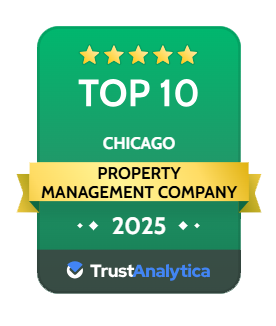Covid has unfortunately made it difficult for many tenants to pay rent. Under normal circumstances, after a missed payment, a landlord has the right to start the eviction process. However, with eviction courts closed and a new Covid-19 Eviction Protection Ordinance in Chicago, the eviction process has become more difficult for landlords. If you are a DIY landlord, it’s important to understand how Covid has changed the eviction process so you do not violate your tenant’s rights. We’ve detailed important information about the updated eviction rules, so you can navigate the eviction process during Covid.
What is the Covid-19 Eviction Protection Ordinance?
The City of Chicago passed the “Covid-19 Eviction Protection Ordinance” to help slow the number of evictions during Covid and prevent expanded housing insecurity. The Ordinance applies to all rental properties within city limits. The Ordinance aims to help tenants who have experienced a “Covid-19 Impact.” A Covid impact is any financial hardship, like a loss or reduction in income or employment, that is attributable in whole or in part to Covid-19.
The Ordinance was passed by City Council on June 17, but is effective retroactively, so it applies to tenant non-payments since March 21, 2020. The Ordinance is set to apply for 60 days after the reopening of eviction courts.
Under the Ordinance, if a landlord wants to evict a tenant, they must first give tenants a five days’ notice. If within those five days the tenant provides a “Tenant Notice of COVID-19 Impact,” there is an additional 7-day negotiation period required prior to filing for eviction and terminating the rental agreement.
Make a Good Faith Effort with Your Tenant
During the 7-day period, you are required to make a good faith effort to contact your tenant and negotiate alternate methods to eviction. The Ordinance provides multiple options for resolving a tenant’s Covid-19 impact without eviction. Some options include payment plans or mediation. It’s important to note that the Ordinance prohibits non-disclosure agreements and institutes a limit on interest and late fees. Within the 7-day period, you are also not permitted to ask for your tenant’s personal information, like retirement accounts, assets or personal property, to help with good faith negotiations. We recommend documenting all interactions and negotiations made with your tenant during this period.
Evicting a Tenant
If a resolution is not reached within the mandatory 7-day negotiation period, you will be required to prove to a judge that negotiations were conducted in good faith. However, even if you prove good faith attempts, you still might not be allowed to evict your tenant. On May 28th, the Circuit Court of Cook County amended General Administrative Order 2020-01 and extended the ban on residential real estate eviction orders until the re-opening of the courts. Additionally, Governor Pritzker’s April 23, 2020 Executive Order prohibited residential eviction actions unless a tenant was a direct threat to the health and safety of other tenants, an immediate and severe risk to property, or in violation of any applicable building code, health ordinance or similar regulation.
Future Tenant-Protection Proposals
The City Council is set to hear two proposed tenant-protection ordinances during their July meeting that, if passed, would further impact landlords and their tenants. The first proposed measure is called the “Fair Eviction Notice,” also sponsored by Mayor Lightfoot. The proposed ordinance would triple the advance notification time landlords are required to give their tenants before terminating, declining to renew, or changing the terms or conditions of their lease from 30 days to 90 days. This would apply to leases of 6 months or longer. This proposed ordinance would also require landlords to pay $2,500 to tenants who are forced to vacate due to demolition or substantial redevelopment plans within 90 days after a tenant’s departure.
The second proposed measure is called the “Just Cause Eviction.” Similarly to the Fair Eviction Notice, the Just Cause Eviction ordinance would increase the notice requirements for landlords looking to increase rent. Additionally, it would prevent landlords from attempting to recover possession or start eviction actions unless the landlord proves violation of one of the specific grounds listed in the ordinance.
Hiring a Professional
Navigating the new and continuously changing eviction ordinances can be frustrating. Hiring a professional property manager can eliminate headaches associated with the eviction process and guarantee you are not violating any tenant-eviction laws. Our expert team can help you negotiate with tenants struggling with rent, guide you through the proper channels, and talk with you about your options.
Give us a call. We would love to speak with you!






.png)


